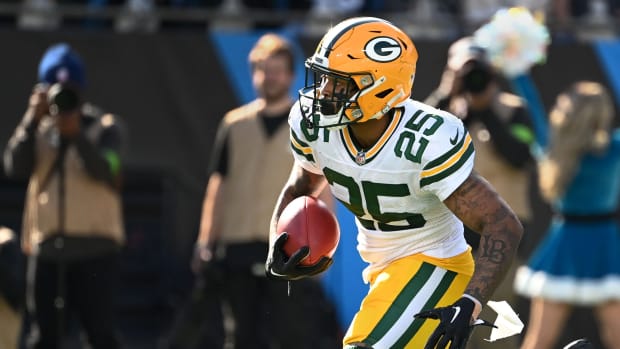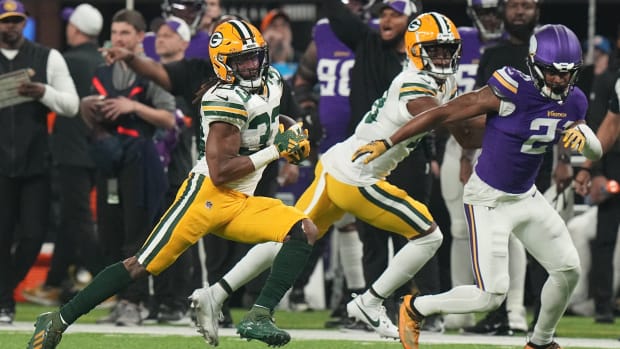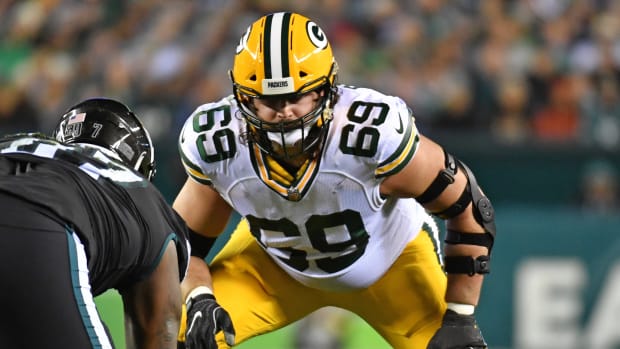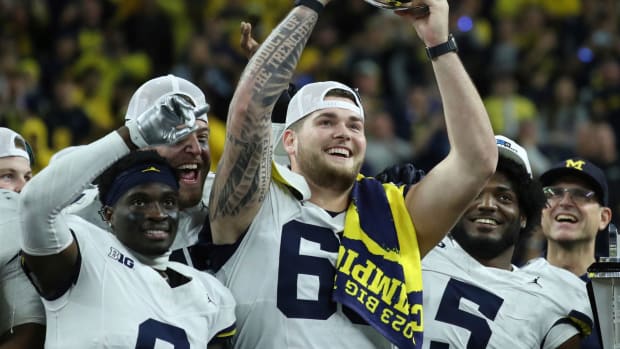CBA Passes; Will Hard Feelings Eventually Pass?
GREEN BAY, Wis. – By a scant 60-vote margin, the players approved a new collective bargaining agreement that will stretch through the 2030 season.
“We are pleased that the players have voted to ratify the proposed new CBA, which will provide substantial benefits to all current and retired players, increase jobs, ensure continued progress on player safety, and give our fans more and better football,” Commissioner Roger Goodell said on Sunday. “We appreciate the tireless efforts of the members of the Management Council Executive Committee and the NFLPA leadership, both of whom devoted nearly a year to detailed, good faith negotiations to reach this comprehensive, transformative agreement.”
Highlighting the deal:
Expanding the playoffs from 12 teams to 14, beginning in 2020. That means the No. 2 seed no longer will have a first-round bye.
The creation of a 17-game regular season, beginning in 2021. The logistics on how to handle that 17th game have not been determined.
A slightly bigger piece of the financial pie for the players, from 47 percent of the revenue in 2020 to 48.5 percent in 2021.
RELATED: ALBERT BREER BREAKS DOWN THE CBA
With significant raises for the league’s legion of minimum-wage players, an extra spot on the gameday roster and expanded practice squads, there were plenty of perks to, almost literally, buy the players’ vote on a deal that runs for 11 years, doesn’t quite get to a 50-50 split in revenue and, in the eyes of those against the deal, doesn’t do enough for former players.
“They can't see the forest because they are so focused on the tree,” Packers cornerback Tramon Williams, who is headed to free agency, said on Twitter. “You will be a former player a lot longer than an actual player in the NFL.”
As tends to be the case with most things in these days of social media, the critics were the loudest.
Video: Gutekunst on going to three preseason games
“The (NFL)PA came around during the season and in the offseason last year and kind of gauged the interest on where people were at, what we wanted, what was negotiable, what was non-negotiable,” Packers quarterback Aaron Rodgers said on the “Wilde and Tausch” radio show on ESPN Wisconsin recently. “And then during the season, there were a lot of negotiations that were going on. Now during that negotiation, I don’t know if there was any current players on the (Executive Committee) involved in those negotiations. So somehow, from the meetings where no one wanted 17 games to the negotiations, 17 games got in there. By the time I was involved in the meeting in Indy there wasn’t any movement opportunities from the owners on 17 games and that’s when I realized that we were definitely up against it. There’s been a lot said about it, obviously I posted about it, other guys have posted about it. There are a number of good things in there, but my problem rests in non-negotiables and I don’t understand how kind of the starting point was a 50-50 split and 16 games. That’s where the frustration, I think, comes in.”
Now, from the players’ perspective, the healing must begin. In a league in which seemingly everyone is swimming in money, it’s not accurate to call it a battle of the haves vs. the have-nots. However, veteran players who have enjoyed long careers and lucrative contracts were fighting for one thing (and fighting against a 17th game) while the players fighting to make one more pay check (and didn’t care about a 17th game) favored an agreement that was in their best interest. Those minimum-wage players were the big winners.
"If it’s just a money grab for you, I think that says a lot more about where you’re at than where I’m at," Rodgers said.
NFLPA President J.C. Tretter, a center for the Browns who was drafted by the Packers, tried to bring his sides together after the vote.
“We pick up a greater share of revenues, make significant gains to minimum salaries and increase our post-career benefits,” Tretter posted on Twitter. “For players past, this deal reaches back in an unprecedented way to increase pensions, benefits and make resources available to them.
“We understand that not all deals are perfect, and we don’t take the gains we wanted, but couldn’t get, lightly. We now must unite and move forward as a union. The interest and passion on the issues that our members have voiced in the past several weeks needs to continue. Our job is never done and we all must work together as one team to build for a better future.”
Amazingly, with millions of dollars on the line, about 500 players decided not to vote. That probably didn't surprise Rodgers, who was frustrated by the lack of communication with his teammates.
"Do guys really care about this stuff?" Rodgers wondered. "Unfortunately, or fortunately, however you look at it, for the people wanting to push this deal through so badly, that’s kind of a win because nobody’s critically looking at this or thinking about it. They’re just like, ‘Oh, what’s my salary going to be? Oh, OK, cool.’"




